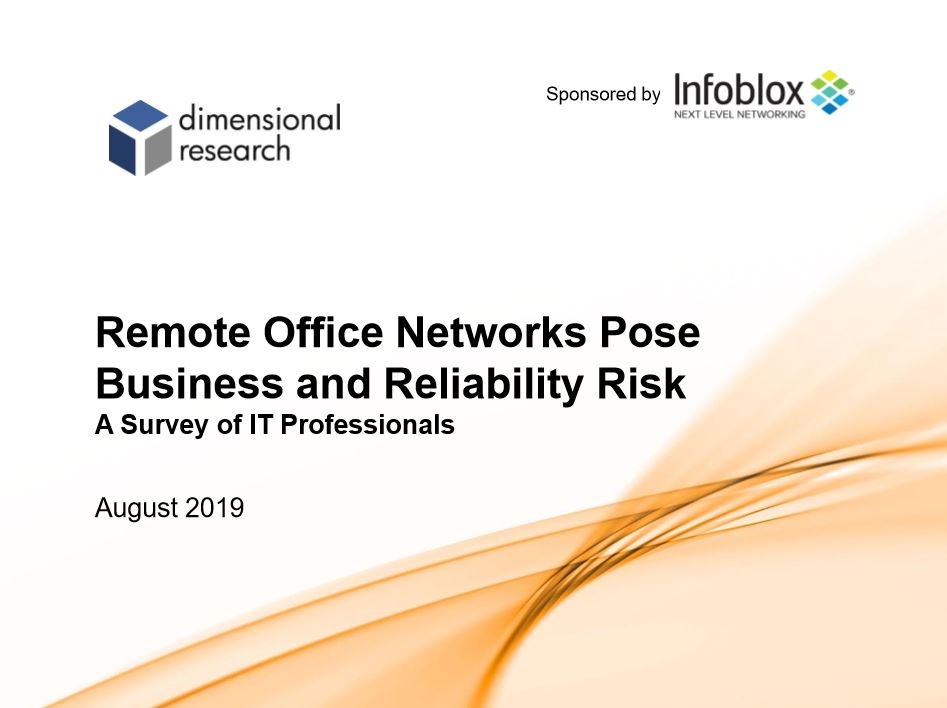Almost a third of businesses lacked a network security plan prior to the pandemic
Report also finds that a quarter of firms experienced "major disruptions"


A report from the Neustar International Security Council (NISC) has found that 29% of companies did not have a fully executable business plan in place to keep their network secure in the event of a major crisis such as the current coronavirus pandemic.
The report, which surveyed 303 senior security professionals across Europe and the US, also found that nearly two-thirds (64%) of businesses experienced at least moderate disruptions to their network security business practices, while nearly a quarter (23%) admitted to experiencing major disruptions.
The main reason for these were credited to the sudden shift to a remote working model as a result of the COVID-19 pandemic and subsequent lockdown.
Rodney Joffe, chairman of NISC and SVP at Neustar, said: “The COVID-19 pandemic has fundamentally shifted the way we work, which has impacted network security significantly. These latest findings from the Neustar International Security Council (NISC) highlight the challenges of using VPNs to allow the majority of the workforce to log on remotely.
"The main issue here is that cyber criminals understand that the hardening of connectivity from a denial of service point of view hasn’t been done.”
What's more, survey responses indicated that only 22% of corporate virtual private networks (VPNs) managed to avoid connectivity issues during the sudden shift to working from home, while 61% experienced minor connectivity issues.
Joffe added that “social distancing measures that call for employees to work from home when possible have dramatically changed patterns of connection to enterprise networks”.
Sign up today and you will receive a free copy of our Future Focus 2025 report - the leading guidance on AI, cybersecurity and other IT challenges as per 700+ senior executives
RELATED RESOURCE

Remote office networks pose a business and reliability risk
A survey of IT professionals shows that nearly every company suffers direct business impact from network service interruptions
“More than 90% of an organisation’s employees typically connect to the network locally with a slim minority relying on remote connectivity via a VPN, but that dynamic has flipped. The dramatic increase in VPN use has led to frequent connectivity issues, and — especially considering the disruption to usual security practices — it also creates significant risk, as it multiplies the potential impact of a distributed denial-of-service (DDoS) attack. VPNs are an easy vector for a DDoS attack,” he said.
The NISC report comes after a survey from enterprise software company Aternity found that employees working from home during the coronavirus pandemic lockdown are suffering from a decline in productivity levels.
Having only graduated from City University in 2019, Sabina has already demonstrated her abilities as a keen writer and effective journalist. Currently a content writer for Drapers, Sabina spent a number of years writing for ITPro, specialising in networking and telecommunications, as well as charting the efforts of technology companies to improve their inclusion and diversity strategies, a topic close to her heart.
Sabina has also held a number of editorial roles at Harper's Bazaar, Cube Collective, and HighClouds.
-
 The open source ecosystem is booming thanks to AI, but hackers are taking advantage
The open source ecosystem is booming thanks to AI, but hackers are taking advantageNews Analysis by Sonatype found that AI is giving attackers new opportunities to target victims
-
 Westcon-Comstor enters Balkan market with REAL Security acquisition
Westcon-Comstor enters Balkan market with REAL Security acquisitionNews The acquisition gives the distribution giant immediate access to an established partner ecosystem spanning eight Balkan markets
-
 UK tech profit warnings at highest level since pandemic
UK tech profit warnings at highest level since pandemicNews Sector uncertainty has continued to dampen profits, with the percentage of firms delisting also having risen
-
 Google rescinds mandatory vaccination policy for US staff
Google rescinds mandatory vaccination policy for US staffNews Employees will also be able to once again benefit from the campus’ massage and shuttle services
-
 Podcast transcript: Digital stagnation in a post-COVID world
Podcast transcript: Digital stagnation in a post-COVID worldIT Pro Podcast Read the full transcript for this episode of the IT Pro Podcast
-
 The IT Pro Podcast: Digital stagnation in a post-COVID world
The IT Pro Podcast: Digital stagnation in a post-COVID worldIT Pro Podcast The pandemic supercharged digital transformation, but what happens now?
-
 SMBs rethinking return to office amid Delta surge
SMBs rethinking return to office amid Delta surgeNews Almost 15% of small businesses have already pushed back their return to office date
-
 How LSE is using digital technology to shape the future of higher education
How LSE is using digital technology to shape the future of higher educationIn-depth COVID may have accelerated digital transformation projects, but progress doesn't have to stop there
-
 How to manage people successfully from a distance
How to manage people successfully from a distanceIn-depth Hybrid working is here to stay, and that means new management tactics for CIOs
-
 Post-pandemic tech jobs
Post-pandemic tech jobsIn-depth How has the pandemic changed the tech jobs landscape, and which tech jobs will be in demand throughout 2021?
